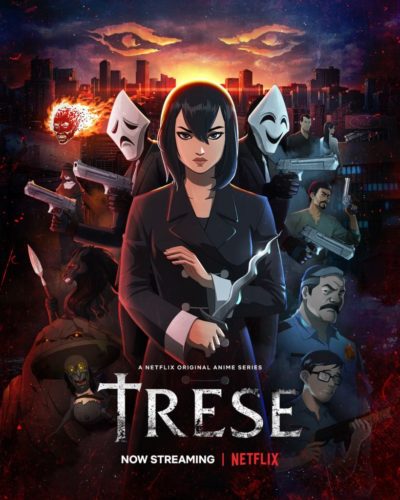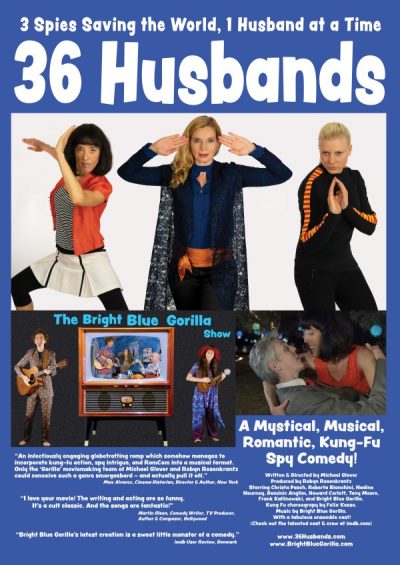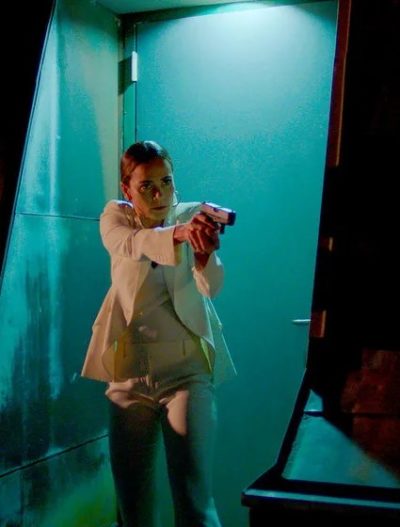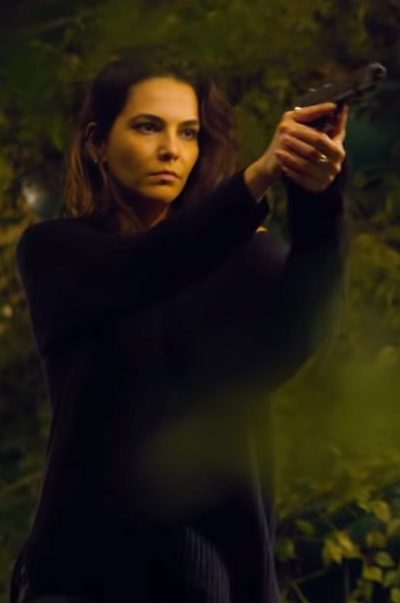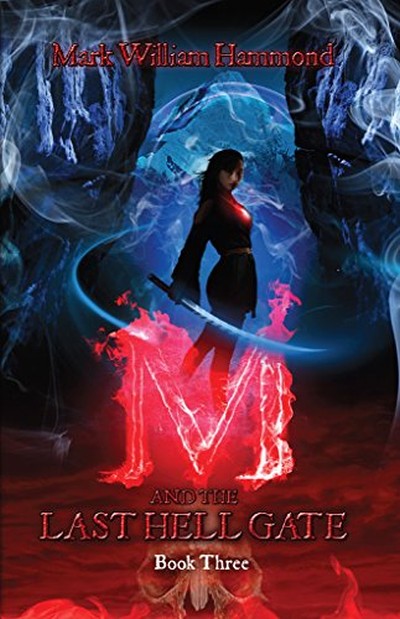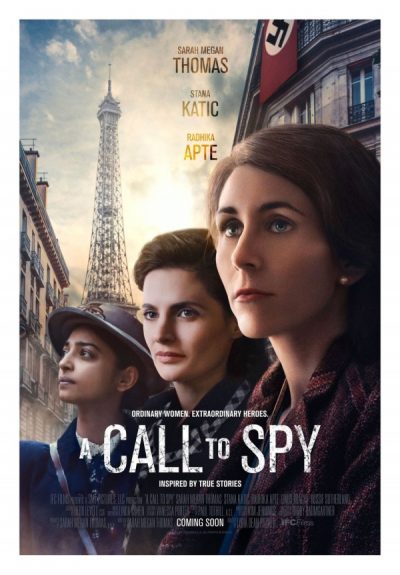★★★
“Mary, Mary, quite contrary.”
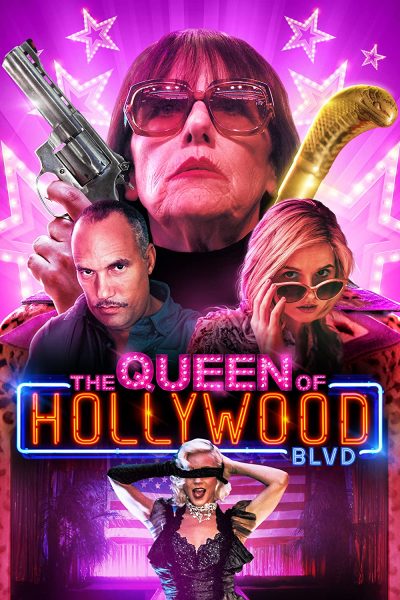 This is definitely not your typical action heroine. For it’s Mary’s (Hochschild) 60th birthday when the events of this film unfold. She runs a long-running strip club on the titular location, when Duke (Smith) spoils the party, by demanding she hand over ownership of the establishment, to settle a loan taken out decades earlier. Mary isn’t having any of it, and when Duke’s lackie Punk Rock Charlie (Berkowitz) shows up to take over, she beats him up and leaves him for dead in the Bronson Caves – which, as the film helpfully tells us, was used as the Batcave for the Batman TV series. But Duke is ahead of her, and has kidnapped Mary’s son. To free him, he demands she do another job: kill an accountant who is being too talkative for Duke’s liking.
This is definitely not your typical action heroine. For it’s Mary’s (Hochschild) 60th birthday when the events of this film unfold. She runs a long-running strip club on the titular location, when Duke (Smith) spoils the party, by demanding she hand over ownership of the establishment, to settle a loan taken out decades earlier. Mary isn’t having any of it, and when Duke’s lackie Punk Rock Charlie (Berkowitz) shows up to take over, she beats him up and leaves him for dead in the Bronson Caves – which, as the film helpfully tells us, was used as the Batcave for the Batman TV series. But Duke is ahead of her, and has kidnapped Mary’s son. To free him, he demands she do another job: kill an accountant who is being too talkative for Duke’s liking.
Unfolding over the course of a single day, there are some interesting elements to this, yet it’s very definitely a mixed bag. Not least among the former: the director is Hochschild’s son, and also plays her son in the movie. She is probably the film’s strongest card; in virtually every scene, without a good performance, this could well have been unwatchable. She puts over a proud, fiercely independent character, who refuses to compromise her morality. We see this early, when she rescues underage Grace (Mulvoy-Ten) from the pimp trying to sell her. Yet she has no qualms about later using Grace to get to the accountant, because her son is simply more important to her. It makes for a fascinating character, one not often seen on-screen among women her age.
Less successful is… Well, a lot of the other stuff. The supporting characters, in particular, rarely rise above a series of clichés. [I’ll give an honourable pass to cult star Michael Parks, in his final role before passing away, even if he does look like death not very warmed up] The pacing is also off, especially at the end, where 45 seconds of action takes about 10 minutes to unfold, thanks to some extraordinary languid dialogue, plus Oblowitz’s love of slow-motion and the glaringly obvious. I mean, did we really need to have her friends cart a throne into the strip-club for Mary to sit on, purely to emphasize the title?
A number of other reviews have compared Oblowitz’s style to Nicolas Winding Refn, and as far as I’m concerned, that’s not a good thing. There are times when I had to suppress an urge to make a “hurry up” gesture towards the screen. Considering her son had been kidnapped, Mary’s lack of urgency seemed questionable, especially when it seemed to be for no other reason to allow Oblowitz his directorial flourishes. The strength of Mom’s performance renders the flashier elements superfluous, and they may even take away from it. Oh, not that it matters, but I strongly suspect the exterior of the club is actually “played” by legendary strip-club Mary’s in Portland, which at one time employed Courtney Love.
Dir: Orson Oblowitz
Star: Rosemary Hochschild, Ana Mulvoy Ten, Roger Guenveur Smith, Matthew Berkowitz






